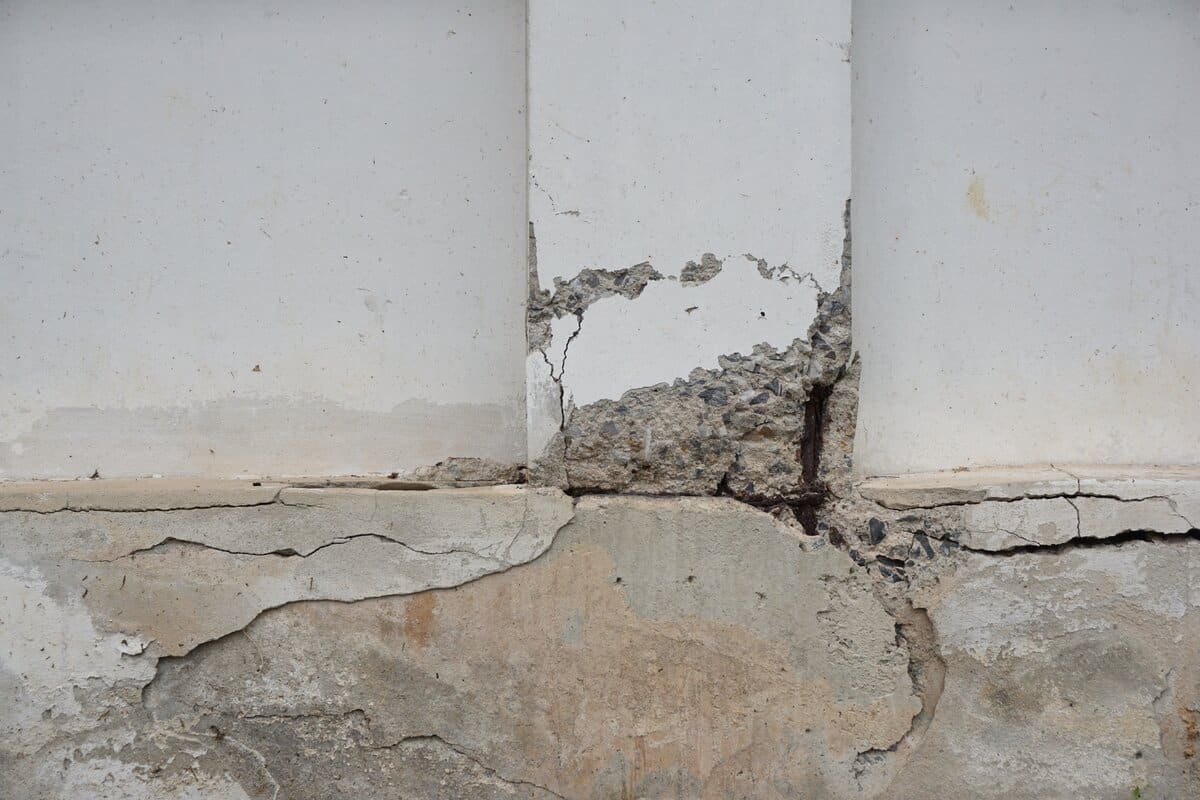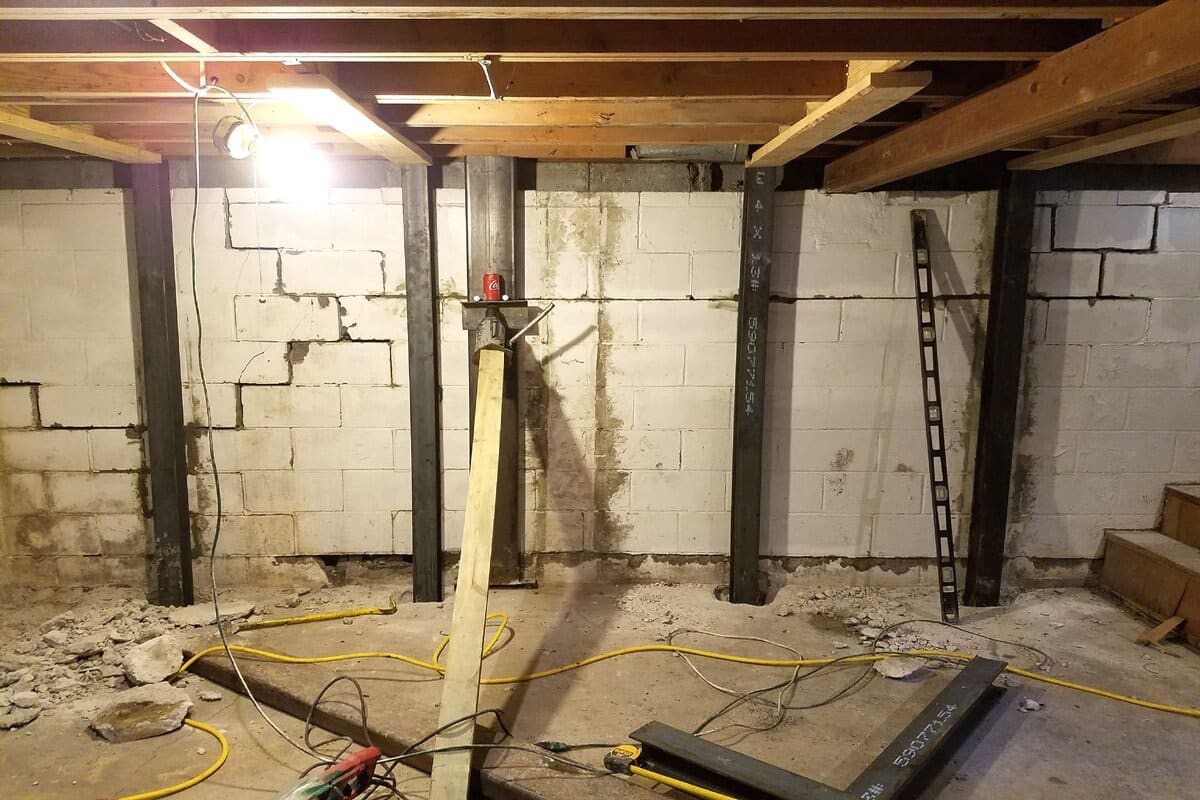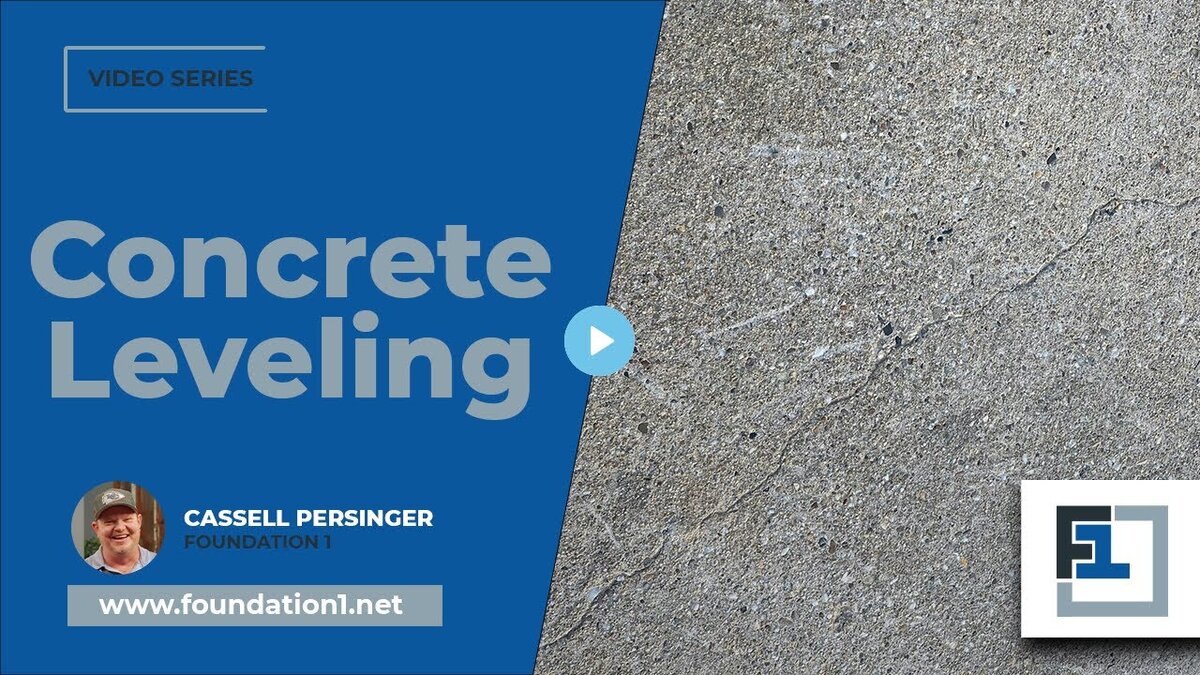When it comes to your home, the foundation is as fundamental as it gets—a sturdy base keeps your walls standing and your roof intact. But what happens when that base isn’t so solid? From subtle cracks to walls that have succumbed to the ground, severe foundation damage can spell major trouble for any homeowner. In this post, we’ll explore what constitutes severe foundation damage, how to assess whether your foundation is beyond repair, and whether it’s wiser to fix up or rebuild from scratch.
What Constitutes Severe Damage?
Foundation problems manifest in various forms, from minor cracks to walls literally laying on the floor. While minor issues are generally fixable, extreme cases often prompt the question: is this foundation beyond repair?
- Extensive Cracking or Bulging: Large, wide cracks or bulging in the foundation walls are tell-tale signs of severe stress and deterioration.
- Water Damage and Soil Shifting: Prolonged water exposure and unstable soil can lead to significant foundation shifting, a precursor to potential collapse.
- Structural Integrity: If a wall has collapsed to the point where it’s laying on the floor, this indicates a critical failure in structural integrity.
Assessing Repair Viability
Is Repairing Always Worth It?
Deciding whether to repair a foundation or opt for rebuilding isn’t just about the technical feasibility. It’s also about economic and practical viability.
- Age of the Home and Neighborhood: Repairing a foundation in a very old home, especially in a historic neighborhood, involves weighing the cost against the home’s value and historical significance.
- Market Considerations: The local real estate market plays a crucial role. In some cases, the investment in repairs might not increase the home’s value proportionately.
When Repair Might Not Be the Answer
In scenarios where a foundation is severely compromised, such as when a wall is entirely on the ground, rebuilding might be more cost-effective and safer. Here are some instances when rebuilding might be preferable:
- Complete Structural Failure: When major portions of the foundation have failed, repairs might be as expensive as, or more expensive than, rebuilding.
- Cost vs. Value: If the cost of repair approaches or exceeds the value of the home, or if it’s disproportionate in terms of future property value, reconstruction could be a smarter financial decision.
When Reconstruction Becomes the Practical Choice
Sometimes, tearing down and starting fresh is not just an option but a necessity. Here are factors to consider if you’re leaning towards reconstruction:
- Comprehensive Solution: Rebuilding provides a complete and often more modern and efficient foundation system that could better resist future problems.
- Long-term Investment: While initially more costly, rebuilding can be a more sustainable investment in the long run, enhancing both safety and property value.
In Summary
Deciding whether a foundation is beyond repair requires meticulous consideration of structural integrity, cost-effectiveness, and long-term advantages. Evaluating these factors can often seem overwhelming, underscoring the importance of professional guidance. If you’re grappling with difficult decisions regarding your home’s foundation, seeking expert advice is essential.
For comprehensive evaluations and customized repair plans, contact us. Our team is dedicated to helping you ascertain the most suitable approach for addressing your home’s foundation issues, ensuring your safety and investment are prioritized.




